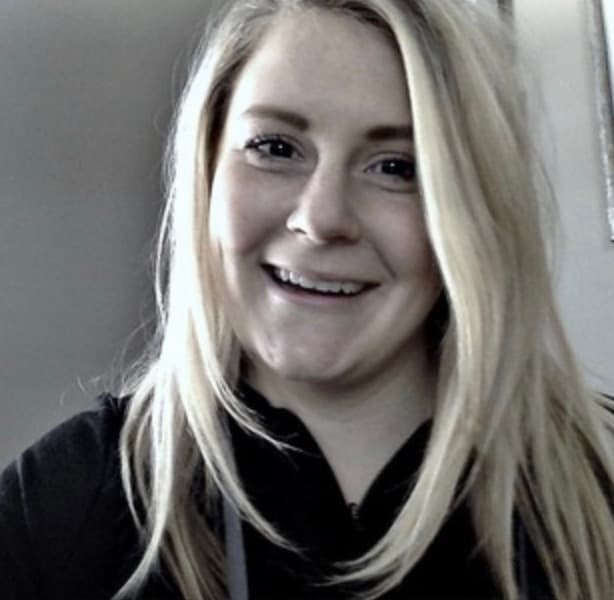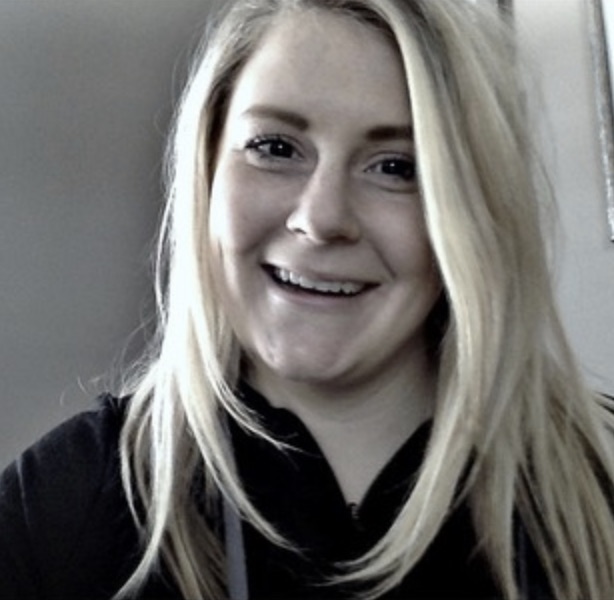
Unveiling the Secrets to New Manager Success
… [Read more](https://www.managersclub.com/unveiling-the-secrets-to-new-manager-success/ "Unveiling the Secrets to New Manager Success")


I just celebrated 7 years at Target Corporate in Minneapolis, MN. I’ve had the opportunity to work on a lot of exciting technology initiatives and projects. A couple of my favorite projects include an app refactor to prepare for the launch of Cartwheel, integrating various systems after Target’s acquisition of cooking.com & chefscatalog.com and helping my team build a homegrown API Platform to support the hundreds of APIs that exist within our ecosystem.
I always knew that leading people was one of my long term goals and was excited to accept an offer a couple years back to fill the open management position on my engineering team. Since then, I have led over 40 people on 6 different Scrum teams.
I currently lead a team of 18 front end Engineers who build various applications to support Target’s Supply Chain organization.
At Target, I am also very fortunate to have several opportunities to share my passion for enabling young women to build confidence for future careers in technology.
Finally, I have enjoyed disrupting the norms of traditional leadership by spending time researching, testing out, and advocating for various techniques to tenaciously put developers first. This year, I founded a company called Developer First to provide resources, strategies, and tools for new managers to effectively lead their teams.
Time management – I have a very large team which requires me to interface with many different business partners (in addition to the most important roles of my job; supporting and advocating for the Engineers).
I have found various ways to overcome this – prioritizing 1:1s as non-negotiable or movable meetings, continuing to invest in my communication skills, and delegating as much as I can.
I have found a couple other tools that have helped me effectively manage my time. For example, the Eisenhower Matrix can be a powerful tool to prioritize tasks by urgency and importance. If I have an especially busy day or a long to-do list, I organize the tasks by considering which ones are: urgent and important (DO FIRST), important, but not urgent (PLAN A TIME TO DO LATER), urgent but less important (DELEGATE). https://www.eisenhower.me/eisenhower-matrix/
I also try to follow a Kanban model throughout the day by limiting the amount of ‘in progress’ tasks. This helps to decrease the amount of context switching. I often find that when I take too much on, even small tasks, the quality of my work suffers, or I completely forget to complete some tasks.
It took far too many years for me to come to the realization that when you say Yes to something, you are saying No to something else. I was one to sign up for any opportunity that came my way. At a large company, this can pile on quickly. Now, I try to only sign up for opportunities that align to my priorities as a leader. These often fall into the following buckets: gathering or sharing information for my team and removing blockers that prevent the team members from making progress towards professional and personal goals.
Lastly, there are a couple books that I found especially helpful on this topic: The Miracle Morning, Hal Elrod and 5 Things Successful People Do Before 8 AM, Terri Foy.
When hiring, I try to focus on work ethic, attitude, passion, and an ability to admit to past failures. We can train for skill later!
I only hire motivated, driven, curious people with positive attitudes. Obviously people will have “off” days. I also require that people can admit to, and demonstrate that they learn from, past mistakes. Everyone makes mistakes, but those who can articulate and teach others what they learned from mistakes will improve the culture of our organizations.
Don’t try to fit into the perfect mold of a manager – be yourself. Identify, make yourself aware of, and work to improve your gaps, but spend more time working to invest in your strengths.
Read as much as you can – there are so many leaders in our industry who graciously share their stories and wisdom.
Determine your priorities as the team’s leader, and make sure you are fulfilling those – what do you need to focus your time and energy on today to serve them best? One day might require spending all of your energy coaching a low performer on the team and the next could involve meetings with business partners to better understand the vision of your team’s product. Make sure you are constantly auditing yourself to see that you are spending time on the right things.
Every day looks very different for me as I try to adapt and shift my time and energy to meet the needs of the team.
A typical day will usually include attending each team’s morning standup, and a couple 1:1s. The rest varies drastically day by day. For example, tomorrow I have 6 1:1s, 3 stand-ups, an all team meeting, a weekly touch base on a cross-org initiative, a monthly touch base with other leaders in my area, and an overview of key business metrics that our apps impact.
I have worked to establish a morning routine that seems to (help) keep me sane: exercise, gratitude, prioritizing, and planning the day hour by hour. This routine helps me start the day with a clear focus and less anxiety to adapt to the inevitable changes that come my way.
Actually, the Rands Leadership Slack workspace where I met Vidal! I only discovered it a couple weeks ago, but have been amazed by the community. It is a great place to seek advice on a specific topic or issue, and also discover new resources, events, and tools.
Radical Candor by Kim Scott. She is able to demystify the act of giving feedback, in my opinion, is one of the most important roles of a leader.
I try my best to listen more than I talk. Too much of our day is spent doing things we THINK people need, instead of actually listening to them. In all of my 1:1s, I make sure to ask 2 questions: What is on your mind? What can I help with this week? These will help you get to the point quickly and not waste time talking about unimportant things. However, I do also dedicate at least a couple minutes to ask about personal things – how was their weekend? Do they have any fun trips planned? Trust is everything when leading people. Without trust, coaching and mentoring can’t exist.
I am most active on LinkedIn (Kate Wardin or Developer First) DF website for upcoming events and talks: www.developer-first.com
Twitter: @developer_first

… [Read more](https://www.managersclub.com/unveiling-the-secrets-to-new-manager-success/ "Unveiling the Secrets to New Manager Success")

… [Read more](https://www.managersclub.com/accelerating-ai-in-your-team-strategies-for-success/ "Accelerating AI in Your Team: Strategies for Success")

In this video, Rajesh Janakiraman, an engineering manager at Google, shares his insights and experiences on leading business critical projects while ensuring his team remains motivated and doesn’t burn out. Business critical projects can be intense, high visibility deadlines that often shift roadmaps and include executive-level oversight. Building the right team, maintaining communication, and managing expectations around these challenging projects are crucial to preventing burnout and driving results.

Are you on the lookout for a collaborative, engaging community tailored specifically for your role? Look no further! Introducing the Managers Club Discord server dedicated to leadership in engineering. We’re a community of engineering managers, team leads, and CTOs who come together to share experiences, best practices, and insights.

Are you an Engineering Manager curious about gauging your effectiveness and success in your role? In this insightful episode, we dive deep into metrics and stakeholder management with Ivan Bilan, an experienced engineering manager. Discover the core metrics for measuring engineering manager performance in people leadership, product quality, delivery, and self-promotion, and learn the importance of stakeholder management in driving team success. In this video, we will be looking at how to measure success and performance for managers. We’ll be exploring different methods and tools that managers can use to measure their own success, as well as the success of their team. Don’t miss out on these valuable insights and strategies!

In this engaging conversation, experienced technical recruiter Kate Parton shares vital advice and insider tips for candidates seeking job opportunities in the tech industry. She discusses red flags to watch for, navigating compensation discussions, common misconceptions about the recruiting process, and how to make the most of your partnership with a recruiter. Discover the role of social media and the rise of AI in the hiring process. Kate shares valuable tips and advice on making your job search and interview process smoother and more successful. Tune in for an insider’s perspective on the world of recruitment and how to avoid common pitfalls!